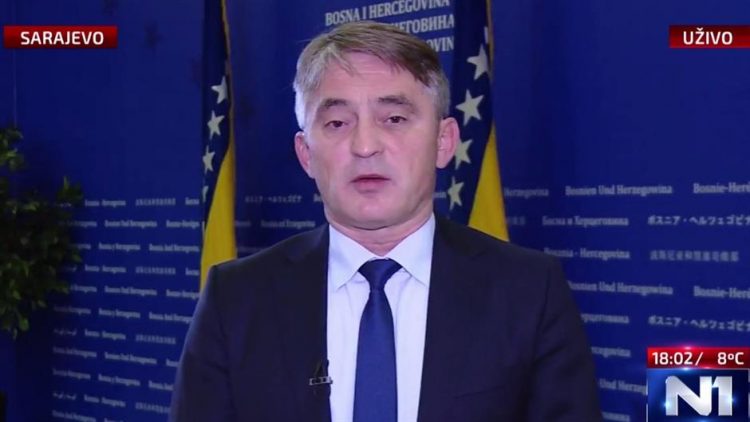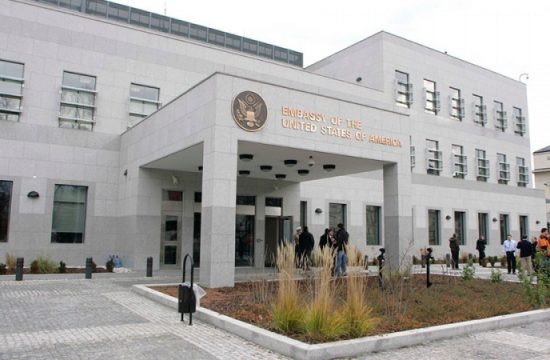
The Republic of Croatia is opening consulates across Bosnia and Herzegovina and they are using the money of Bosnian citizens for that, said Zeljko Komsic, Croat candidate for Bosnia's tripartite Presidency and the Democratic Front (DF) leader.
Komsic's statement came as a reaction to a ceremony in the southwestern Bosnian town of Livno, when Croatia's Prime Minister, Andrej Plenkovic, and Croat member of Bosnia's Presidency, Dragan Covic, opened a consulate, the second one Croatia opened this year in Bosnia.
“Croatia is doing that in a completely illegal way without an agreement with Bosnia and Herzegovina, but with the approval of its shut down para-creation, so-called Herzeg-Bosnia,” said Komsic, referring to the para-state created by Croat nationalists in south of Bosnia in the early 1990s, whose forces were first allied with Bosnian armed forces during the 1992-95 Bosnian war but then turned against each other.
“I call on the representatives of authorities of the Republic of Croatia to stop the arrogance and robbery of Bosnia and Herzegovina,” Komsic underlined.
According to him, the opening of the offices itself is not problematic but the fact that this is done with the funds gained “in the robbery of Bosnia and Herzegovina's citizens” is.
Croatia is using Bosnia's resources including the water from the artificial lake, the Lake Busko, which provides that country with “illegal” profit of at least EUR 35 million a year, according to Komsic.
Opening of the consulates will not keep the Croats in Bosnia, he stressed. “In this predatory way you are creating an ambient without a perspective of this country and its citizens, including Croats,” Komsic concluded.
Croatia's President, Kolinda Grabar-Kitarovic, opened a consulate of that country in the central town of Vitez in May this year, which was expected to provide services to nearly 100,000 people living in that region.
Ethnic Croats of Bosnia are the third most numerous people in that country and one of the three constituent peoples, which means they are entitled to equal rights with other two constituent ethnic groups – Bosniaks and Serbs.



